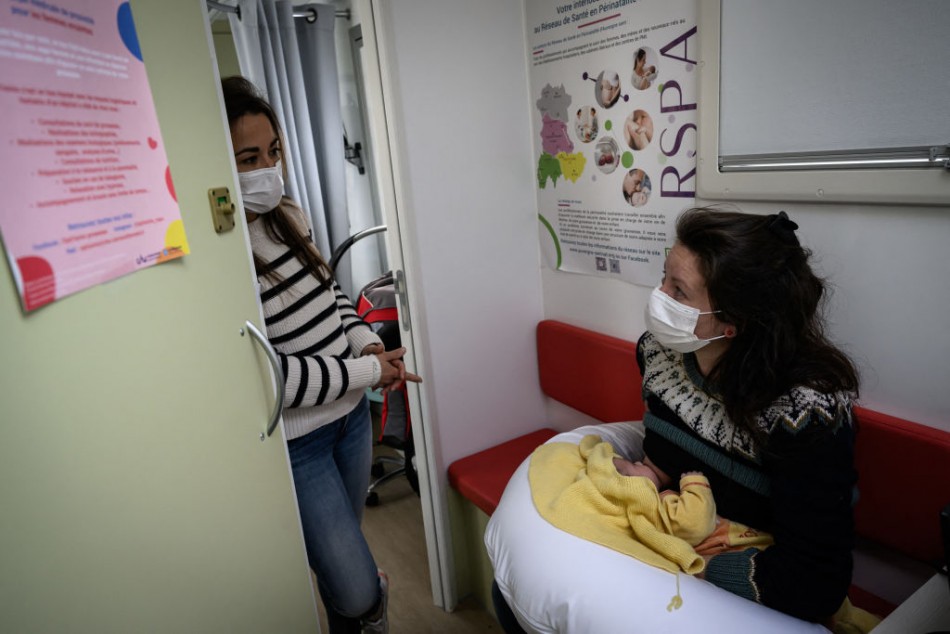Postpartum Headaches: Types, Causes and Treatments

Postpartum headaches can result from numerous causes stemming from both physiological and lifestyle changes after giving birth.
Hormonal variations, sleep deprivation, and nutrient deficiencies are among the chemical changes that can cause these headaches. Additionally, stress plays an important role in intensifying postpartum headaches.
Types of Postpartum Headache
Types of headaches that can occur after giving birth include mainly headaches and secondary headaches. Primary headaches are not caused by another condition and are commonly not alarming, although they can be very terrible.
The pain results from inflammation in blood vessels, muscles, and nerves in the head and neck. Numerous types of primary headaches include:
- Migraines: Commonly defined by aching discomfort on one side of the head, along with manifestations such as nausea, and sensitivity to light, noise, and smells.
- Tension headaches: Usually causing discomfort on both sides of the head, occasionally supported by sensitivity to light and sound.
- Cluster headaches: Commonly recognized on one side of the head, specifically behind one eye, and may happen at the same time of day for various weeks.
- Hypnic headaches: These occur during sleep, usually affecting persons between the ages of 40 and 80.
Secondary headaches, on the other hand, are more severe and arise quickly with serious pain. They are commonly caused by other health results influencing the head or neck, such as head or neck injury, brain infection, brain tumor, high blood pressure, or aneurysm.
What are the Signs of Postpartum Headache?
- Mild to moderate discomfort akin to pressure on both sides of the head (tension headache).
- Intense, pulsating, or pounding pain concentrated in a specific area of the head (migraine).
- Burning or stabbing pain centered behind one eye and extending to nearby regions (cluster headache).
- Dull or throbbing pain exacerbated by sitting or standing but alleviated by lying down (spinal headache).
While common postnatal headaches like tension headaches and migraines are typically benign, sudden and severe headaches accompanied by unusual symptoms could signal postnatal preeclampsia or a brain blood clot.
Read Also: Postpartum Preeclampsia: Causes and Symptoms of this Rare Condition Following Childbirth
Key warning signs include:
- Blurred vision or light sensitivity, sometimes accompanied by visual disturbances.
- Cognitive changes such as confusion or mental fog.
- Swelling of the face, hands, feet, or extremities.
- Nausea and vomiting.
- Pain, often near the rib area.
- Shortness of breath.
- Seizures.
If encountering these manifestations, seek immediate medical attention.
What Triggers Postpartum Headaches?
- Declining hormone levels: After giving birth, levels of gestation hormones like estrogen return to pre-gestation levels within six weeks. This hormonal shift, particularly in estrogen, can cause headaches, specifically migraines susceptible to hormone variations.
- Demands of infant care: Caring for infants' needs may result in missed meals, inadequate hydration, and sleep deprivation, adding to stress-induced headaches.
- Epidural administration: Spinal fluid leakage from an epidural injection can change the pressure of cerebrospinal fluid encompassing the brain, probably causing headaches. Healthcare providers should inform patients about this probable side effect before administering an epidural.
Pregnancy-related body changes raise the danger of circumstances where headaches are manifestations rather than the main situation.
Altered blood vessel dynamics during pregnancy can elevate the risk of postnatal preeclampsia, while stroke risk peaks shortly after childbirth. Headaches are common symptoms of both conditions.
Treatment approaches vary depending on the cause.
The outlook for postpartum headaches is generally positive, especially for primary headaches and post-dural puncture headaches, although prompt medical attention is vital to avoid complications. However, conditions like preeclampsia or meningitis demand urgent intervention to prevent severe outcomes.
Prevention strategies focus on recognizing and addressing both physiological and lifestyle factors contributing to postpartum headaches.
Early medical consultation and adherence to preventive measures can significantly improve outcomes and quality of life during the postpartum period.
Related Article: When to Worry: Identifying Normal and Abnormal Cramps During Pregnancy
© 2024 ParentHerald.com All rights reserved. Do not reproduce without permission.
